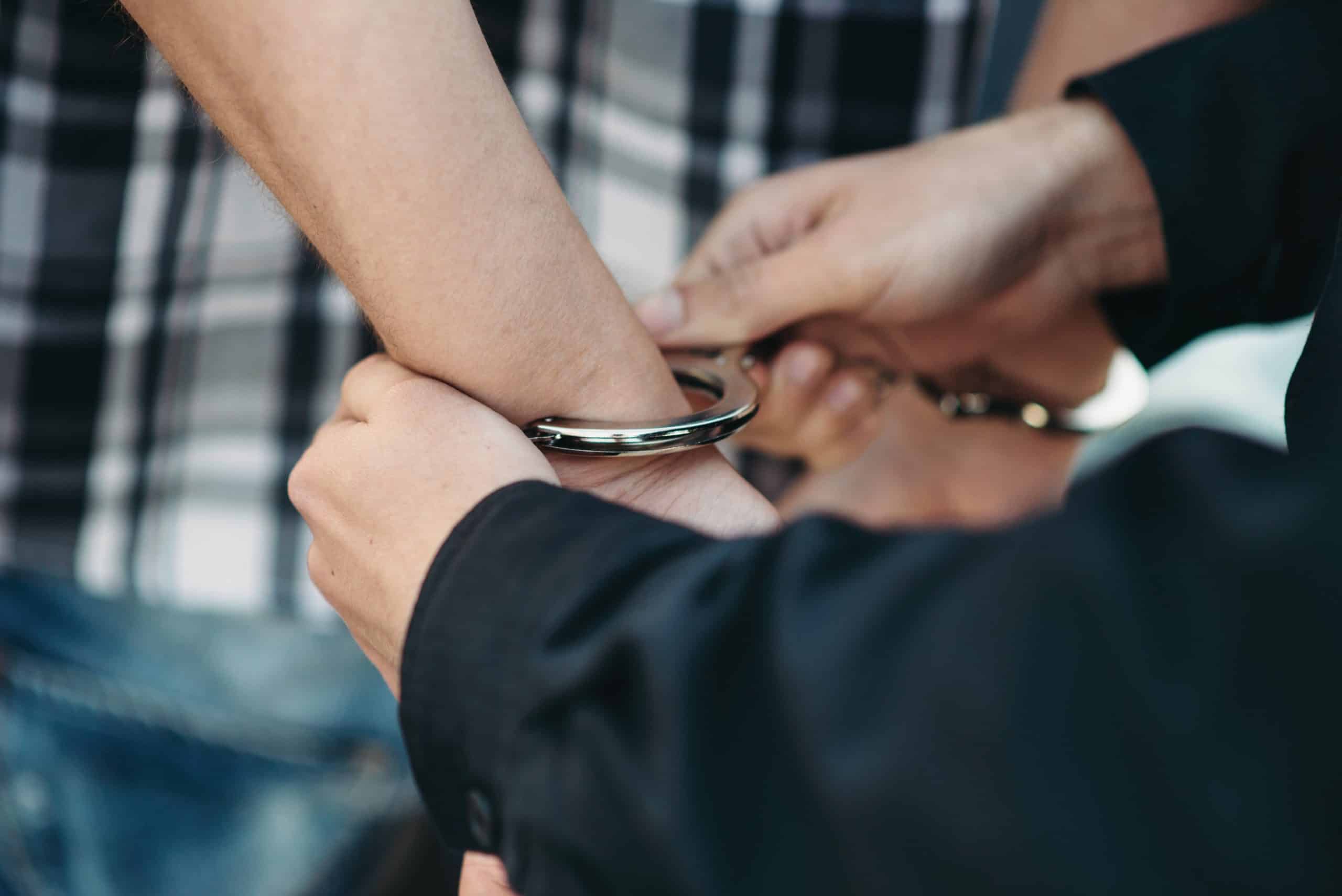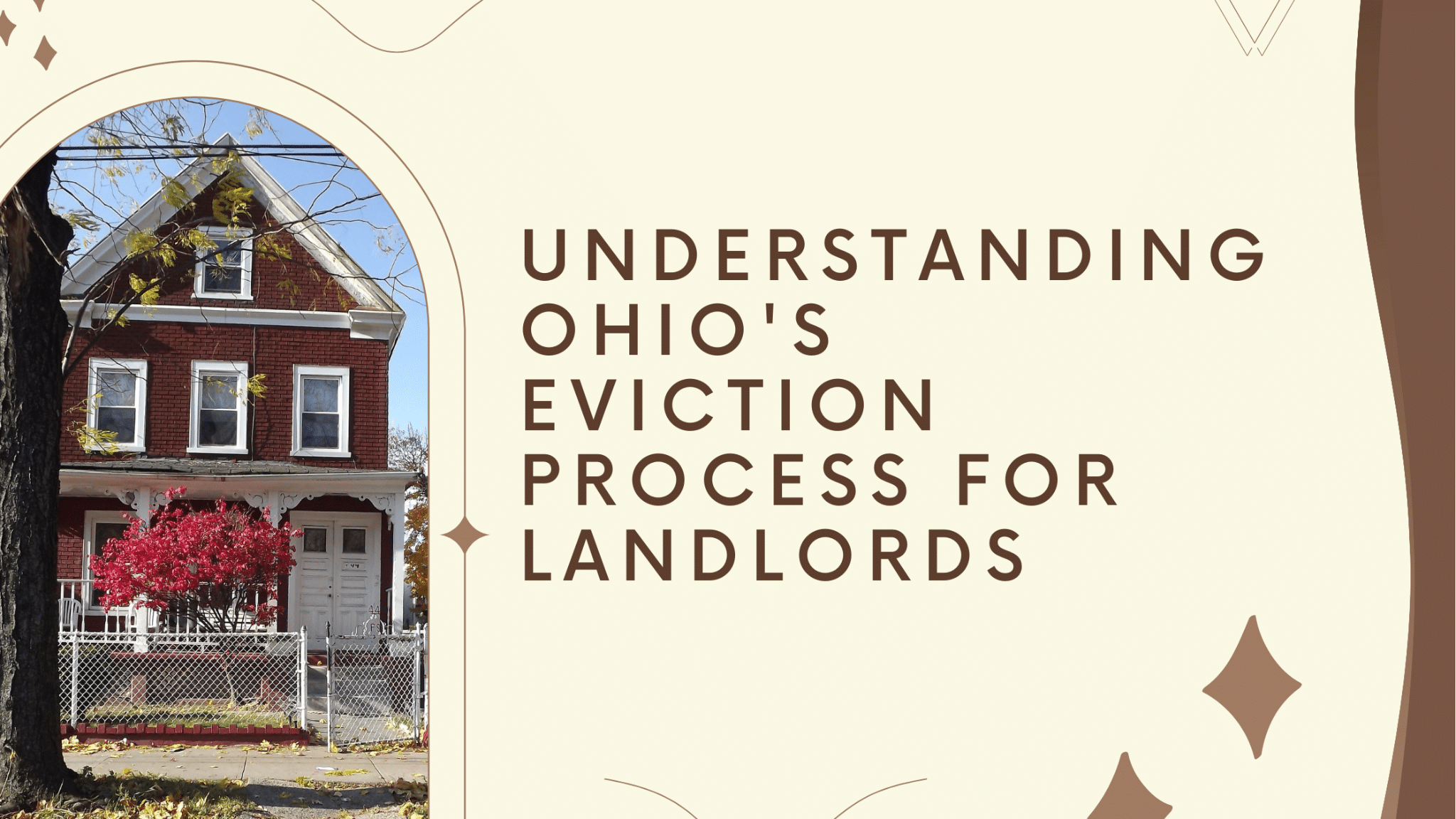As a landlord in Ohio, it’s important to understand the state’s eviction process in order to navigate it smoothly and legally. The process can be confusing and time-consuming, but by familiarizing yourself with the steps and requirements, you can protect your rights as a property owner and ensure that your tenants are held accountable for their actions.
In this blog post, we will break down Ohio’s eviction process for landlords, including the grounds for eviction, the notice requirements, and the court process. Whether you’re a new landlord or a seasoned pro, this guide will provide you with the knowledge you need to navigate Ohio’s eviction process with confidence.
What is an eviction?
An eviction is the legal process by which a landlord terminates a tenant’s right to occupy a rental property. The process typically begins with the landlord serving the tenant with a notice to vacate, and if the tenant fails to do so, the landlord will file a lawsuit in court to have the tenant removed.
Landlords may have to go through the eviction process for various reasons, such as non-payment of rent, violation of the lease agreement, or illegal activity on the property. The eviction process gives the landlord the legal right to regain possession of the property and to protect their property rights. Additionally, going through the eviction process allows landlords to hold tenants accountable for their actions and ensures that the tenant has been given due notice and the opportunity to correct the issue before being evicted.
The different types of evictions that can occur in Ohio
In Ohio, there are several types of evictions that a landlord can initiate, including:
- Non-payment of rent: This occurs when a tenant fails to pay their rent on time and the landlord serves them with a notice to vacate.
- Lease violation: This occurs when a tenant violates the terms of the lease agreement, such as by having unauthorized occupants or pets, and the landlord serves them with a notice to vacate.
- Illegal activity: This occurs when a tenant is engaged in illegal activity on the property and the landlord serves them with a notice to vacate.
- No-cause eviction: This occurs when a landlord terminates a month-to-month tenancy without any cause or reason. However, this is not allowed in all cities or municipalities in Ohio.
- Holdover Tenancy: This occurs when a tenant stays in the property after the lease has expired or been terminated and the landlord serves them with a notice to vacate.
It’s important to note that, the eviction process must be handled in accordance with the Ohio’s landlord-tenant laws and regulations, and landlords must follow specific procedures in order for the eviction to be considered legal.
How to start the eviction process as a landlord in Ohio?
To start the eviction process as a landlord in Ohio, you must first give the tenant written notice to vacate the property. The duration of notice required varies based on the grounds for eviction. For non-payment of rent, the notice must be 3 days. For any other reason, the notice must be 30 days. If the tenant does not vacate the property after the notice period, you can file an eviction lawsuit with the court. The court will then schedule a hearing and the tenant will have an opportunity to respond. If the court finds in your favor, they will issue a writ of eviction and the sheriff will be responsible for removing the tenant from the property.
What happens during the eviction process and what tenants can expect?
During the eviction process, the landlord must first give the tenant written notice to vacate the property. The notice period necessary is contingent upon the cause of the eviction proceedings. For non-payment of rent, the notice must be 3 days. For any other reason, the notice must be 30 days. If the tenant does not vacate the property after the notice period, the landlord can file an eviction lawsuit with the court.
Once the eviction lawsuit is filed, the court will schedule a hearing and the tenant will be served with a summons and complaint. The tenant will then have the opportunity to respond to the complaint and present any defenses they may have. The hearing will then take place, where both the landlord and tenant will present their evidence and arguments.
If the court finds in favor of the landlord, they will issue a writ of eviction, allowing the sheriff to remove the tenant from the property. The tenant will be given a certain amount of time to vacate the property, typically 24-72 hours. If the tenant does not vacate the property within the specified time, the sheriff will physically remove the tenant and their belongings from the property.
During the eviction process, tenants can expect to be notified of the reason for the eviction and their rights to contest it. They can also expect to be given a certain amount of time to vacate the property if the eviction is granted. They also may have the right to appeal the court’s decision. It’s important for tenants to understand that during an eviction process, it’s essential to keep all the communications and documents from the landlord and court, in case they need it for legal matters.
How to end an eviction in Ohio?
There are several ways to potentially end an eviction in Ohio:
- Paying the rent: If the eviction is for non-payment of rent, the tenant can pay the outstanding amount in full before the eviction hearing. This will typically result in the landlord dismissing the eviction case.
- Negotiating with the landlord: The tenant and landlord can come to an agreement to end the eviction. This could include the tenant paying the outstanding rent or damages, or the landlord agreeing to withdraw the eviction case.
- Contesting the eviction: The tenant can contest the eviction by going to the hearing and presenting evidence and arguments in their defense. If the tenant is able to successfully contest the eviction, the case will be dismissed.
- Filing an appeal: If the court finds in favor of the landlord and grants the eviction, the tenant can file an appeal to have the decision reviewed by a higher court.
- Seeking legal assistance: The tenant can seek legal assistance from a lawyer or a legal aid organization, who can help them to understand their rights and potentially contest the eviction.
It’s important to note that the eviction process can be complex, and the best course of action will depend on the specific circumstances of the case. Seeking legal assistance from a lawyer or legal aid organization can be helpful in understanding the process and exploring options.
Final Thoughts
In conclusion, it’s important for landlords to understand the eviction process in Ohio to ensure that they are following the correct steps and procedures. The eviction process can be complex, and it’s essential to give proper notice to tenants and file the appropriate paperwork with the court.
Landlords should also be aware of their rights and responsibilities under Ohio law, and seek legal assistance if they need help navigating the process. By understanding the eviction process, landlords can effectively and legally remove tenants who are not in compliance with their lease agreement, while also protecting their own rights as a property owner.











